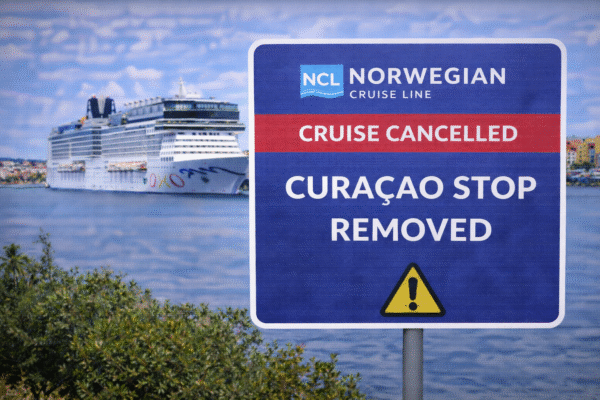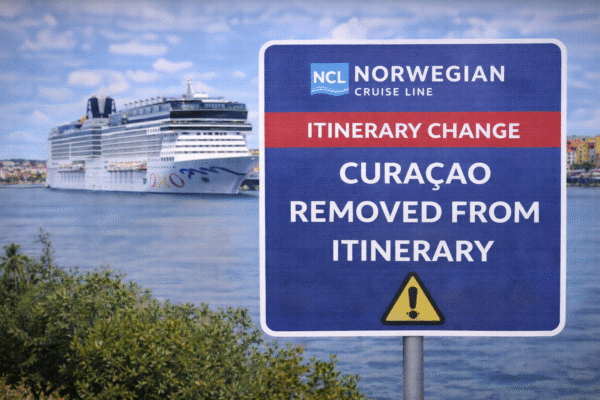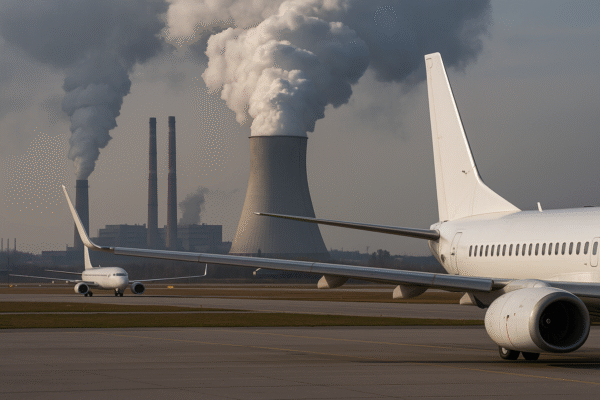As international travel surges past pre-pandemic levels, the global tourism industry is now confronting a pressing reality: its growing contribution to the climate crisis can no longer be ignored. With emissions rebounding sharply and the planet edging dangerously close to irreversible climate tipping points, the travel sector finds itself at a historic juncture—one that could define the future of global mobility, environmental integrity, and cultural preservation.
According to the United Nations World Tourism Organization (UNWTO), global tourist arrivals are expected to reach 1.45 billion in 2024, nearing full recovery. While this reflects economic revival, it also reveals an alarming rise in greenhouse gas emissions, for which tourism accounts for nearly 9% of the global total. If the industry continues along its current trajectory, it could undermine international efforts to limit global warming to 1.5°C, as outlined in the Paris Agreement.
Why Urgent Action Is Critical
The past year saw the global average temperature rise 1.56°C above pre-industrial levels, breaching the Paris threshold. This escalation is already triggering devastating climate consequences: melting glaciers in the Alps, rising sea levels threatening island nations like the Maldives, and extreme weather events damaging fragile ecosystems and heritage sites.
Destinations such as Venice face frequent flooding, while ski resorts in the Swiss Alps are grappling with shortened snow seasons. Meanwhile, deforestation in the Amazon rainforest is accelerating biodiversity loss and weakening the planet’s climate resilience. These are not distant warnings—they are unfolding in real time.
Tourism’s Expanding Carbon Footprint
The tourism industry’s impact extends beyond aviation. It includes hotel operations, food logistics, cruise liners, and local transport—all contributing significantly to CO₂ emissions. Despite this, tourism has often been sidelined in climate policy discussions dominated by the energy and manufacturing sectors.
Yet, projections from climate researchers warn that international tourist arrivals could reach 1.8 billion by 2030, drastically increasing the sector’s climate footprint unless sustainable reforms are enacted immediately.
Technology as a Climate Ally
Fortunately, many of the tools needed for a climate-aligned travel sector already exist. Innovations like:
- Real-time carbon tracking
- Emission-integrated booking systems
- Smart offsetting APIs
can help both businesses and consumers make informed, sustainable choices. However, the lack of universal standards remains a major obstacle. Industry leaders are being urged to make carbon tracking as mandatory and commonplace as mobile check-ins or e-tickets.
Consumer Demand for Eco-Friendly Travel
Travelers themselves are driving the shift. A 2024 international survey indicated that 54% of consumers are willing to pay more for sustainable options, with an average premium of 9.7%. Furthermore, 92% of travelers said sustainability influences their brand loyalty.
This trend suggests that sustainable tourism is not just a moral imperative but a strategic business advantage. Tour operators and accommodations that provide transparent carbon data, eco-certifications, and authentic climate action are seeing increased consumer trust and loyalty.
Flawed Offsetting Models Must Be Reimagined
Despite increased interest in carbon offsetting, current voluntary models have proven inadequate. Experts argue for mandatory, embedded carbon offsetting, where emissions charges are integrated into the cost of every travel service. Leading certifications such as the Verified Carbon Standard, Gold Standard, and UN Climate Neutral Now offer reliable frameworks to ensure transparency and credibility in offsetting.
These systems, however, must complement—not replace—structural decarbonization efforts. Clean aviation fuels, sustainable architecture, renewable energy-powered hotels, and eco-mobility are crucial for long-term transformation.
A Call for Unified Industry Action
Experts agree: piecemeal efforts won’t cut it. The travel industry needs a coordinated global framework—perhaps through the UNWTO or International Civil Aviation Organization (ICAO)—to implement:
- Mandatory carbon levies
- Global emissions tracking standards
- Climate funds for nature-based solutions
A single dollar per booking, if standardized globally, could raise billions annually to invest in reforestation, clean energy, and community-based resilience projects.
Climate Tipping Points Are Here
The tourism industry’s reluctance to adapt may soon be outpaced by geopolitical and environmental shifts. Climate tipping points such as:
- Melting of the Greenland and West Antarctic ice sheets
- Collapse of the Atlantic Meridional Overturning Circulation (AMOC)
- Severe degradation of the Amazon Rainforest
are pushing the Earth into a potential tipping cascade. This domino effect could lead to rising seas, food insecurity, mass displacement, and biodiversity collapse—all of which will severely disrupt global tourism flows.
Tourism Must Lead, Not Linger
The warning from scientists and climate authorities is unambiguous: the tourism sector must reinvent itself quickly and decisively. The time for voluntary pledges is over. What’s needed now are:
- Mandatory emissions disclosures
- Industry-wide sustainability mandates
- Integration of climate risk into all travel planning
By 2025 and beyond, sustainability will no longer be a differentiator—it will be the minimum threshold for business survival.
Conclusion: Reinventing Travel for a Livable Future
The tourism industry has the power to inspire, connect cultures, and support economies. But it also carries a significant responsibility. The choices made today will determine whether future generations can explore a planet that is still safe, diverse, and breathtaking.
It is not just about keeping travel alive—it’s about ensuring that our planet remains worth traveling across.
For more travel news like this, keep reading Global Travel Wire



















